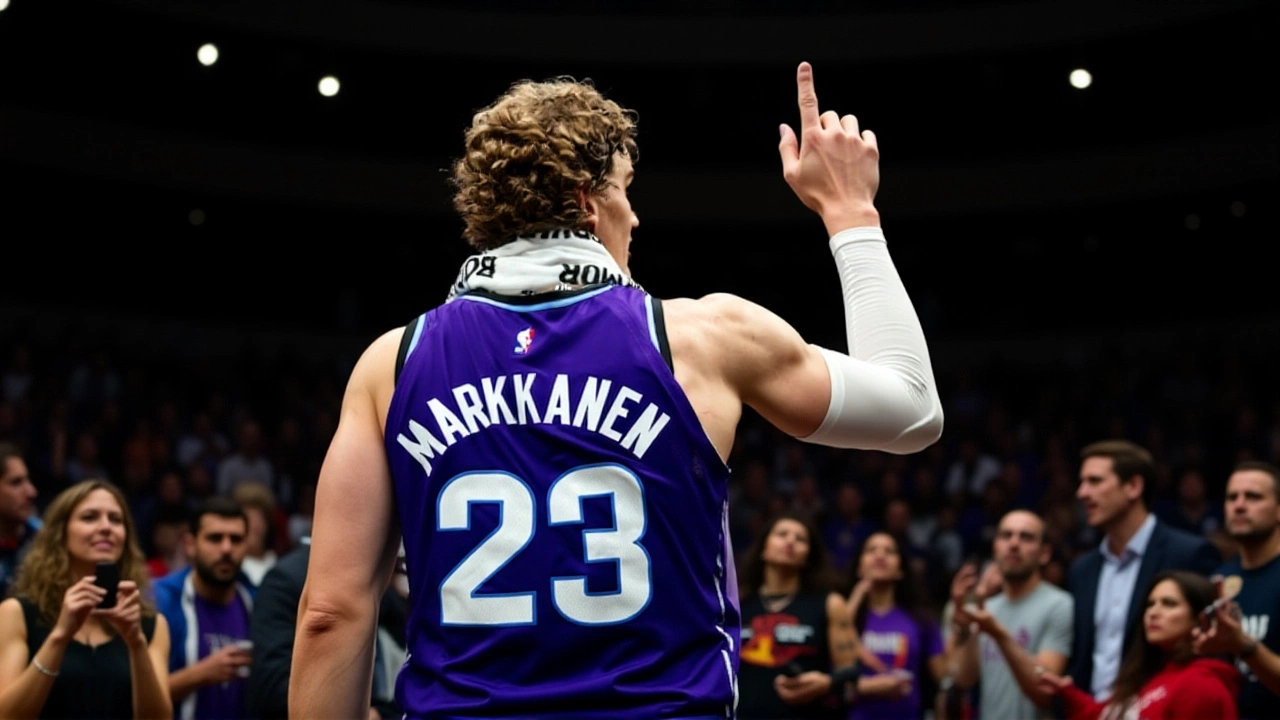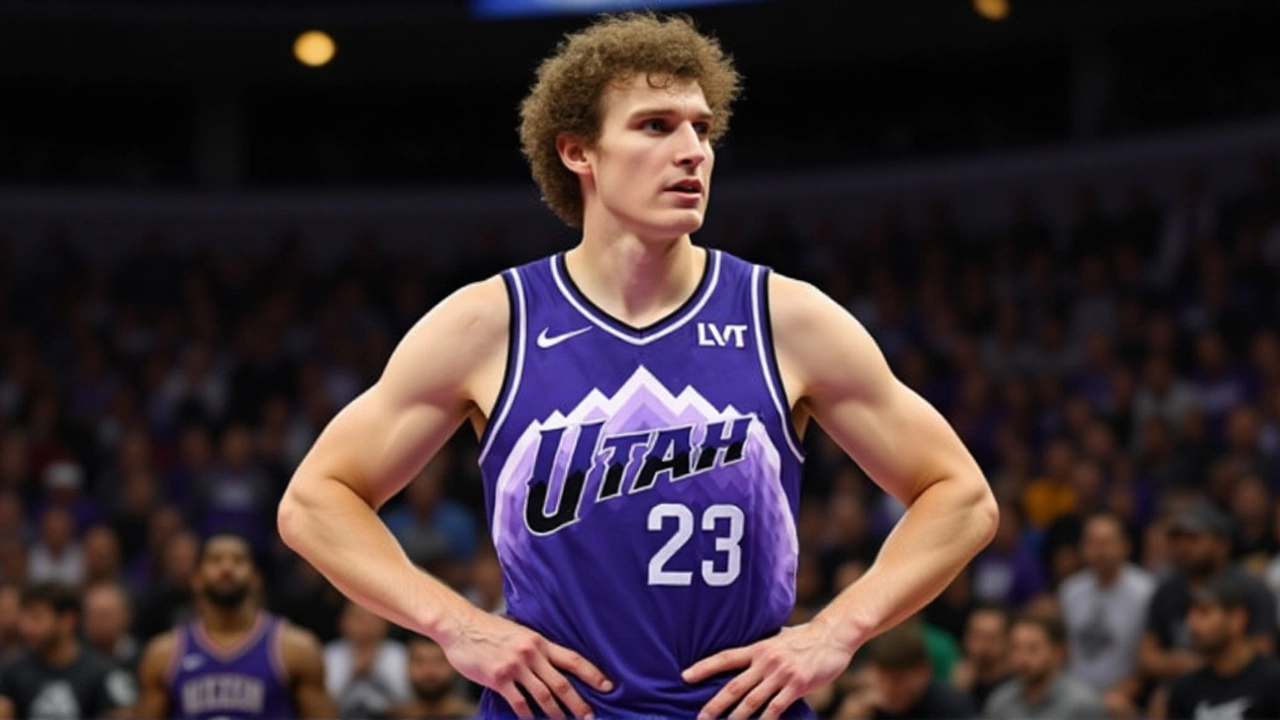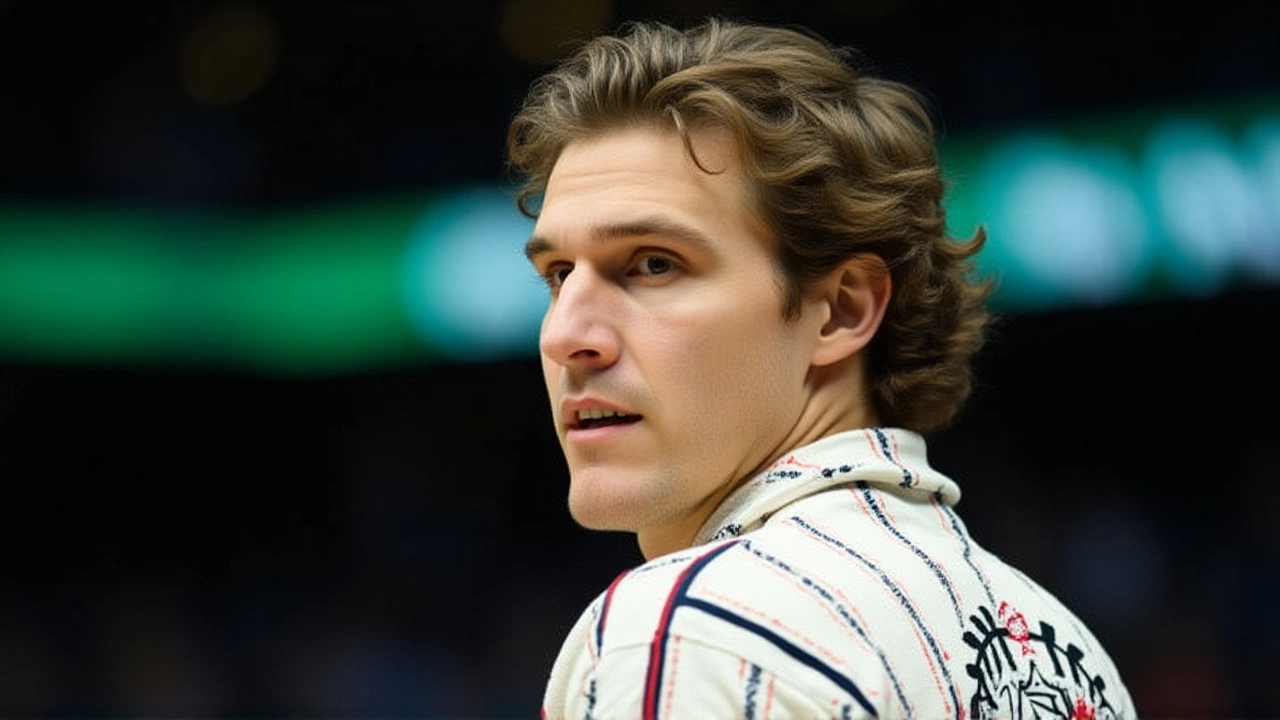As the Utah Jazz prepare for their 2025-26 season opener on October 28, 2025, in Salt Lake City, trade rumors surrounding Lauri Markkanen have flared up—only to be swiftly doused by league insiders. The Finnish All-Star, 28, isn’t being shopped, despite what one prominent report suggested. The Utah Jazz front office, led by Justin Zanik, has been consistent: they’re open to calls, but they’re not calling anyone. And that’s the difference that matters.
What’s Really Going On With Markkanen?
It started with a report from Sports Illustrated’s Chris Mannix on October 21, 2025, claiming the Jazz were "very open" to trading Markkanen. But within 24 hours, Jake Fischer of The Stein Line—a newsletter founded by Shams Charania—pushed back. After checking with league sources, Fischer wrote: "The Jazz’s stance hasn’t shifted much at all." They’re not shopping him. They’re listening. Big difference.Why the confusion? Because Markkanen’s contract just became trade-eligible. He signed a five-year, $238,044,544 extension on August 7, 2024, but deliberately waited until the first day he could—August 7—to avoid a trade restriction that would’ve locked him in through the entire 2025-26 season. SLC Dunk noted it wasn’t lost on the Jazz: "He delayed signing to ensure he’d be trade-eligible this year." That’s not a sign of discontent. It’s a calculated move by a player who wants control—and a team that respected it.
The Contract Isn’t a Burden—It’s a Tool
Some assume Markkanen’s $53.5 million max cap hit in 2028-29 is a problem. It’s not. Not for this roster. The Jazz’s core is young and dirt-cheap: Walker Kessler, their 24-year-old center, makes just $5.1 million this season. Other key contributors are on rookie deals or affordable extensions. The Jazz aren’t paying six figures for luxury—they’re paying for continuity. As Salt City Hoops put it bluntly on October 26, 2025: "Markkanen’s contract is a complete non-issue... their young roster is cheap and pending extensions for Kessler, etc. over."That’s the reality: this isn’t a salary cap crisis. It’s a roster-building opportunity. Markkanen is the most proven scorer on the team. He’s the only All-Star they’ve had since trading Donovan Mitchell and Rudy Gobert in 2022. He’s also the only player who can reliably stretch the floor and carry offensive load while Kessler protects the rim. Trading him for two future second-round picks? That’s not rebuilding. That’s surrendering.

Why the Rumors Keep Coming
The truth? Trade rumors follow Markkanen like a shadow. They started in 2023, picked up again in 2024 after his All-Star nod, and resurfaced this month because... well, he’s a big name on a rebuilding team. That’s the NBA’s default script. But the Jazz have been clear since the 2024 offseason: they’re not selling. They’re developing.And they’ve got proof. On October 25, 2025, Markkanen dropped 34 points in overtime against the Phoenix Suns—a game ClutchPoints called "history not seen this century" for the franchise. That’s not the performance of a player checking out. That’s the performance of a cornerstone.

What’s Next? The Trade Deadline Looms
The NBA’s 2025-26 trade deadline is February 6, 2026. The Jazz aren’t ignoring it. They’re monitoring. They’ll field calls. But they won’t panic. With no playoff pressure and a roster full of draft picks and young talent, they have time. And Markkanen? He’s got four more years on his deal. He’s not going anywhere unless the offer is truly transformative—not just a draft pick swap, but a franchise-altering deal.Right now, the Jazz are betting on patience. On Kessler’s growth. On the development of their young guards. On letting Markkanen lead them through this awkward, necessary rebuild. And if you’re watching closely, you’ll notice: they’re winning more than they lost last year. They’re not in the gutter anymore. They’re just getting started.
Frequently Asked Questions
Why are people saying the Jazz want to trade Lauri Markkanen?
Rumors stem from Markkanen’s newly trade-eligible status after his August 2024 contract extension and his status as a high-salary All-Star on a rebuilding team. But multiple sources, including Jake Fischer of The Stein Line, confirm the Jazz are only listening to offers—not actively pursuing trades. The narrative is driven by media speculation, not front-office action.
Is Lauri Markkanen’s contract a financial burden for the Jazz?
No. With Walker Kessler earning just $5.1 million and most of the roster on rookie or team-friendly deals, Markkanen’s $42.2M–$53.5M annual cap hit is manageable. The Jazz’s total payroll remains below the luxury tax threshold. His contract is a long-term investment, not a liability—especially since he’s the team’s most reliable offensive weapon.
What would the Jazz get in return if they traded Markkanen?
If traded, the Jazz would likely seek young players or high-value draft picks—possibly a top-10 protected pick or a promising 20-year-old with upside. But no team is offering a true franchise player in exchange. Given the Jazz’s rebuilding timeline and Markkanen’s age (28), the return wouldn’t justify losing their best scorer and only All-Star.
How does Markkanen’s presence affect the development of young players like Walker Kessler?
Markkanen’s spacing and scoring create room for Kessler to thrive as a rim protector and lob target. His ability to draw double-teams opens driving lanes and kick-outs for guards. Without him, the offense becomes predictable and less efficient. He’s not just a scorer—he’s a catalyst for the entire young core’s growth.
When will we know if the Jazz trade Markkanen?
The NBA trade deadline is February 6, 2026. Until then, the Jazz will continue evaluating offers, but sources indicate they’re unlikely to move him unless a truly exceptional deal emerges. If no trade happens by mid-February, expect Markkanen to remain in Salt Lake City through at least the 2028-29 season.
What’s the long-term plan for the Utah Jazz?
The Jazz are building around Kessler, Markkanen, and their young backcourt. They’ve accumulated draft picks and cap flexibility. Their goal isn’t to win now—it’s to become a consistent playoff contender by 2027-28. Markkanen is central to that plan: he’s the bridge between the rebuild and the next competitive era.
